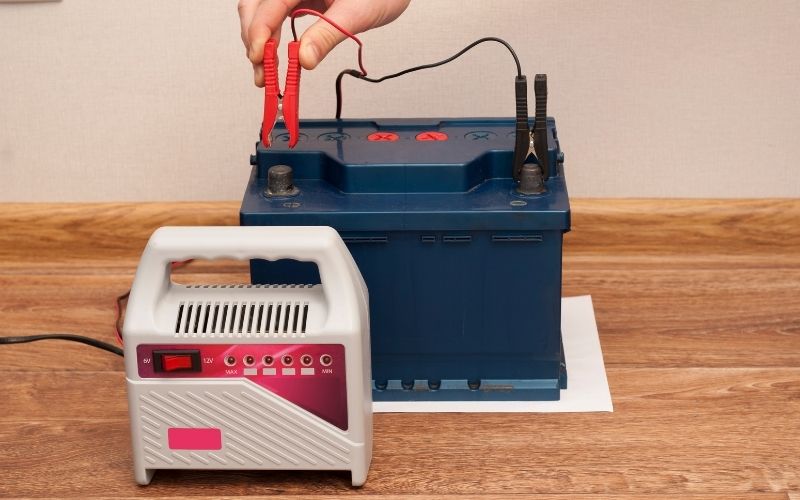So, you get back from a great day on the water and hook up your marine battery charger. But the next morning, you find that the battery hasn’t charged at all. You may suspect a bad battery at first, but the battery appears to be fine upon closer inspection.
Instead of a bad battery, you may wonder if your problem is a bad charger.
But is that even a thing? Do marine battery chargers go bad?
How can you determine if you have a bad charger? And is there anything you can do to prevent your charger from going bad in the future?
Keep reading!
In this article, we’ll answer all of these questions and more.
Table of Contents
Do Marine Battery Chargers Go Bad?
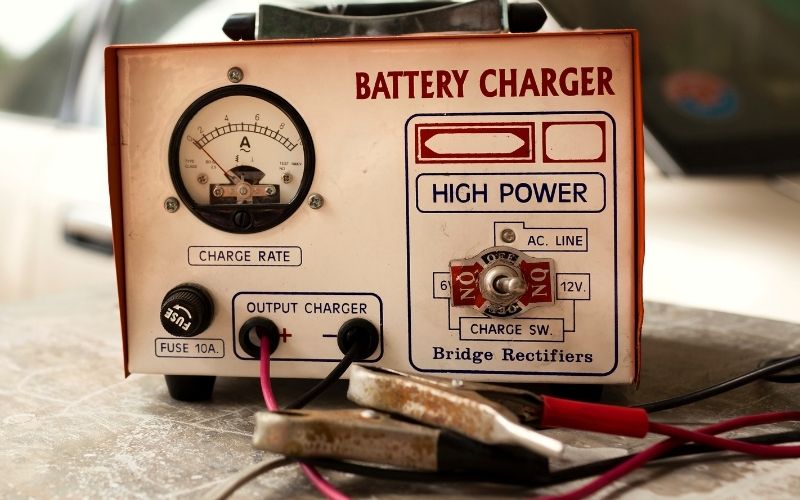
Like any electronic device, it is possible for a marine battery charger to become corrupted or damaged or to simply wear out over time. This is a normal occurrence and is almost certain to happen sooner or later.
Of course, the goal is to get as much life out of your battery charger as possible, just as you want to get the most out of the batteries themselves. If you’re buying a new charger every year or two, you may need to ask yourself if you’re doing something to shorten their lifespan.
What Causes a Marine Battery Charger to Go Bad?
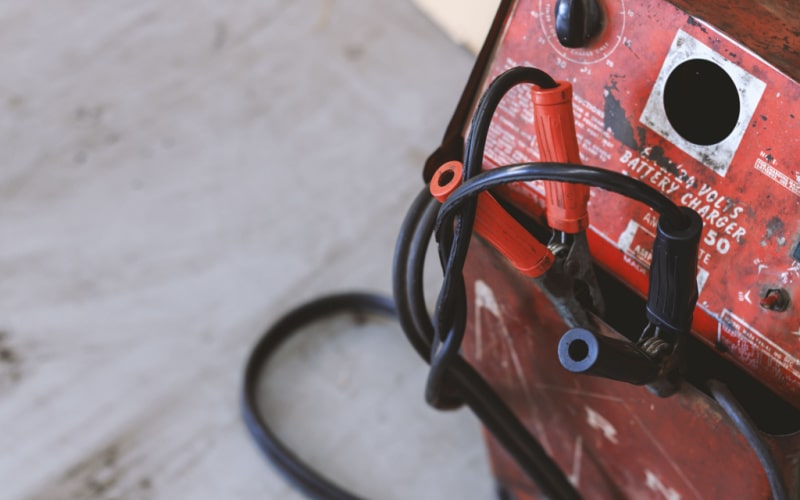
Marine battery chargers don’t last forever, but at the same time, they should last at least as long as your batteries (and often longer).
So, what causes a charger to go bad, and is there anything you can do to keep it from happening to future battery chargers?
One of the most common factors leading to charger failure is exposure to the elements. Just as you wouldn’t want to dunk your marine battery in water, you wouldn’t want to leave your battery charger out in the rain.
Some batteries can handle a wider range of temperatures than others, and the same is true of battery chargers. You may want to think twice before leaving your charger in the garage through the winter or keeping it in your car during the summer.
How you handle your charger can also affect how long it lasts. Pulling or carrying your charger by the cords, dropping or throwing it, and otherwise handling it roughly can easily cause irreparable damage.
If you take your charger on the boat with you (or keep a spare onboard), make sure it is in a watertight package and stored out of direct sunlight. Getting sprayed by seawater or left in the sun for too long can cause your battery charger to fail.
Even using your charger too much or too little can cause it to fail before its time. Obviously, the more you use it, the greater the chance it will wear out; but if you rarely go out on the water and only charge your battery a couple of times a year, the charger may fail from disuse.
How Do I Know if My Boat Battery Charger is Bad?
As you can see from the above section, there are many things that may cause a marine battery charger to go bad. But what do the results of a bad charger look like? What are the symptoms of a bad charger?
- The charger won’t charge a battery: If you hook up your charger in the evening, your battery should be replenished by the next morning. If instead, you find the battery level is just as low as it was the night before, this is probably due to charger failure.
- The charger appears dead: Some chargers may have indicator lights or LED screens. If these indicators don’t respond when you plug in your charger or hook it up to your battery, the charger probably has a short somewhere in the electrical system.
- There are visible loose connections: Check the cords and cables of your charger. Do any of them appear frayed, loose, or damaged? Any visible damage to your cords is almost certain to indicate a damaged electrical system and, in turn, a faulty charger.
- There is visible damage or corrosion: If you notice rust or corrosion of any kind anywhere on your charger, it has probably been damaged by water. Any other damage to the external casing of the charger can also mean damage to its interior.
Could It Be a Bad Battery Instead?
If your battery isn’t charging, you may initially assume there’s a problem with the battery itself and not the charger. Is there any way to tell the difference between battery failure and a bad battery charger?
A bad battery may present with many of the same symptoms as a bad battery charger. It may not be able to receive or hold a charge, and it may show signs of damage and corrosion.
If there is no noticeable damage, the easiest way to know if your battery is at fault is to have it tested or to check it yourself using a handheld battery tester. If the battery tests normal, then your problem is most likely to be found with the battery charger and not the battery.
How Long Do Marine Battery Chargers Last?
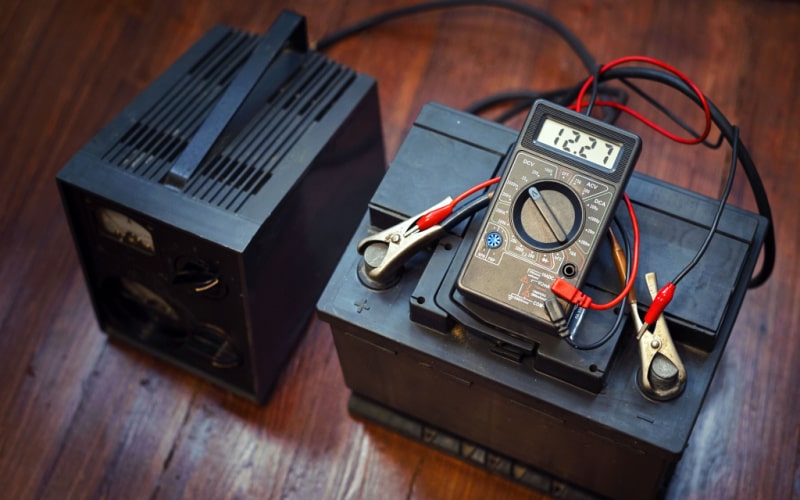
As noted above, a good battery charger should last at least as long as your battery. Of course, battery life varies widely depending on many factors, and the same is true of battery chargers.
Some of the factors that affect the lifespan of your charger include:
- Care and maintenance: Obviously, a battery charger that is taken care of and maintained properly will last longer than one that is neglected or abused. In fact, proper care and maintenance can extend your charger’s life far beyond what may be expected.
- Exposure to the elements: Chargers that are kept away from rain, snow, sea spray, sunlight, and other damaging conditions will last longer than those that are constantly being bombarded by the elements.
- Temperature extremes: Battery chargers stored in a climate-controlled environment tend to last longer than those stored in extremely hot or cold conditions.
- Frequency of use: As noted above, using your charger too much or too little can also affect its lifespan. Check your owner’s manual to get an idea of how frequently your charger should be used to keep it in proper working order.
- Type of charger: Chargers for lithium batteries may last longer than chargers for lead-acid batteries simply because the batteries themselves will last longer. What’s more, some brands of chargers are better made than others.
When shopping for a new battery charger, keep in mind that you generally get what you pay for. You may not want to buy the most expensive option on the market, but you certainly don’t want to waste your money on a cheap one either.
How Do I Maintain My Marine Battery Charger?
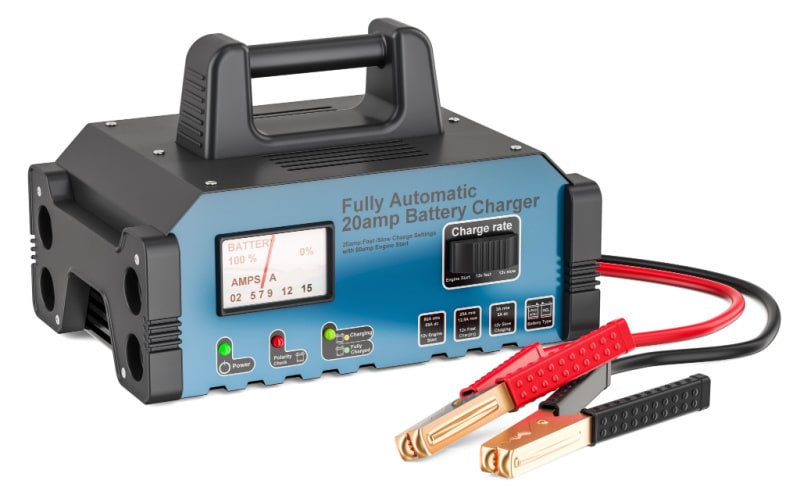
As mentioned above, one of the most important aspects of preserving and extending your charger’s life is to keep it properly maintained. But what does that mean exactly?
There are three sides to keeping your charger maintained: proper care, storage, and use. Let’s take a closer look at each of these:
Proper Care
Before using your battery charger, read the owner’s manual that comes with it, and only use it as instructed. Do not use it in bad weather or rough water conditions. If it gets wet, dry it off immediately.
Keep the charger free from dirt, water, and other liquids. Handle it with care, and put it away when you’re done using it–don’t leave it sitting out in the weather. Take care of your charger and it will take care of you.
Proper Storage
Always read the manual included with your charger for information about heat, cold, and weather exposure. The manual will give you specific information about the kinds of temperature extremes the charger can handle.
Keep the charger stored in a climate-controlled environment, if possible. A cool, dry place away from direct sunlight is best.
Proper Use
If you take your charger out on your boat, make sure it is protected from water and sunlight. Always remember to take your charger off the boat and return it to its proper storage when you’re done with it.
Do not leave your charger outside between uses. Charge your battery only as long as necessary, making sure it is away from water and out of direct sunlight while using the charger. Again, return it to proper storage when you are not using it.
Conclusion
Even the best-made, most well-maintained marine battery chargers will fail eventually, as no electrical device lasts forever. The good news is, you can greatly extend your charger’s life with the proper care and maintenance as outlined in this article.
The next time you have to buy a new battery charger, consider the different options and try to choose a high-quality one. Then, think about what it will take to keep it working the longest. With a little bit of planning and effort, you can help your charger to last and even outlast your battery.

Sarah Hood has been writing for Anchor Travel since 2021. When she’s not writing, she enjoys cooking, singing, and spending time in the great outdoors.

